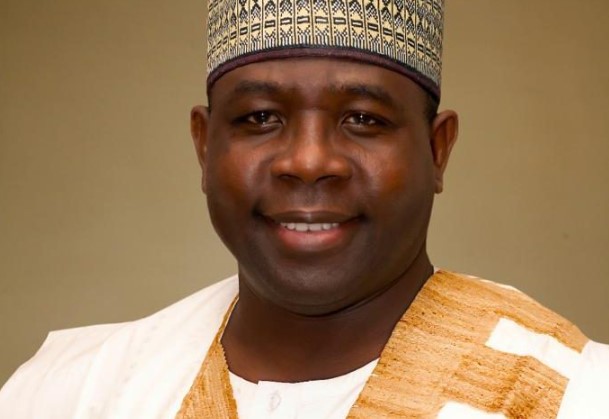BY UCHENNA NWATU
Although it is unconscionable to even attempt to rationalize governments’ apparent default in its obligations towards pensioners, it always helps however when issues are put in proper perspectives, as matters relating to pensions and gratuities are seldom ever as straightforward as they seem, not least in Nigeria.
The insistence of labour unions in the public sector on the outmoded and largely unfunded defined benefits scheme, as opposed to the more enduring contributory pension scheme, continues to put an enormous strain on public finance given the constant rise in recurrent expenditure. Perhaps the biggest drawback of the defined benefits scheme, particularly in a time of declining revenue to states as witnessed in recent years, is the rising arrears of unpaid pensions and gratuities seen in many states across the country.
But the truth is that an incumbent administration may not necessarily be responsible for those debt pile-up. In Enugu State, for instance, at the accession to office in 2015 of Governor Ifeanyi Ugwuanyi, the incumbent, the last time local government pensioners were paid their gratuity was in 2001. That was 14 years earlier, which meant that two administrations before his were primarily responsible for the default. No burden from the past, however plausible, can be considered exculpatory for any inability to carry out a binding obligation. Government is a continuum, after all.
Advertisement
However, it needs to be emphasized that there actually would be no pension and gratuity deficits had previous administrations demonstrated as much commitment to the welfare of retirees as the Ugwuanyi administration has done. This is no glib remark. I’m saying that advisedly, particularly as someone whose parent had waited years on end for his gratuity. My father retired as a craftsman on Grade Level 7, in 2005. He did not receive his gratuity until 2017 when he was almost 80 years, courtesy of Ugwuanyi’s benevolence. There were countless other pensioners like my father who had all but lost hope that they would receive their gratuity in their lifetime.
Again, I use the word “benevolence” advisedly, as he may pretty much had refused to pay like his predecessors, without any consequences. But he did because he has the fear of God and an uncompromising fidelity to the social contract. The governor used the entire first tranche of the Paris Club refund to offset arrears of salaries owed workers across the 17 local government councils of Enugu State. Some local governments were, in fact, owing its staff arrears of salaries between eight and 14 months. A substantial arrears of unpaid gratuity were also paid that year.
Governor Ugwuanyi’s scrupulous deployment of the Paris Club refund towards offsetting outstanding arrears of salaries and pension of local government workers and retirees was not an appeal to populism. He had also set a very high watermark in accountability with the handling of the federal government bailout funds approved in 2016 to help states solve pressing recurrent obligations for which many states (with exception of a few including Enugu) had been in default for months.
Advertisement
Such transparency and prudence had drawn commendation from members of the Senate Committee on State and Local Government Administration who described Governor Ugwuanyi as the most outstanding governor in the utilization of the bailout funds. As the committee’s chairman Senator Abdullahi Gumel had said then after their oversight visit to Enugu State, “We have gone through the books. And as far as the bailout funds are concerned, everything is in order. In fact, Enugu State has even gone further because we haven’t seen this in any other states. We are not saying it because he was our colleague (Governor Ugwuanyi was a three-time member of the House of Representatives); we are doing it because we have seen with our eyes. This is an innovation and we are reflecting it in our report. We are proud of him.”
Indeed, even before the state received its share of the Paris Club refund, the governor had directed that the sum of one hundred million naira be set aside monthly as gradual payout to clear backlog of pension and gratuity. That policy stands as a true exemplar. Through such devotion, one can easily deduce what he could have accomplished if the revenue accruing to states from the federation account had not experienced such a drastic reduction. I’m aware that a number of retirees have yet to receive their gratuity, but his sustained commitment, as evident in the monthly pool of funds, stirs the hope that nearly all backlogs will be cleared before he leaves office. The inherited deficit in pension and gratuity is despite the fact that before his administration, state government coffers were literally awash with cash, both via the regular Federal Accounts Allocation Commission income and funds from the then bulging Excess Crude Account.
It is commendable that governors like Ugwuanyi continue to demonstrate exemplary commitment to offset backlogs arising from their predecessors’ irresponsible handling of such critical obligation. Yet, it is important to reiterate that payment of pensions and gratuity should not be subject to the benevolence of governments. When it is left to the whims of humans, it becomes prone to abuse. And no pension plan is as prone to abuse as the defined benefits arrangement. Of course, the defined benefits system may subsist for now given the large number of existing pensioners who cannot possibly be enrolled under the contributory scheme. But there is no doubt that the latter is, ultimately, the efficacious – albeit bitter – pill that we need to swallow someday.
Nwatu resides in Enugu.
Advertisement
Views expressed by contributors are strictly personal and not of TheCable.
Add a comment






